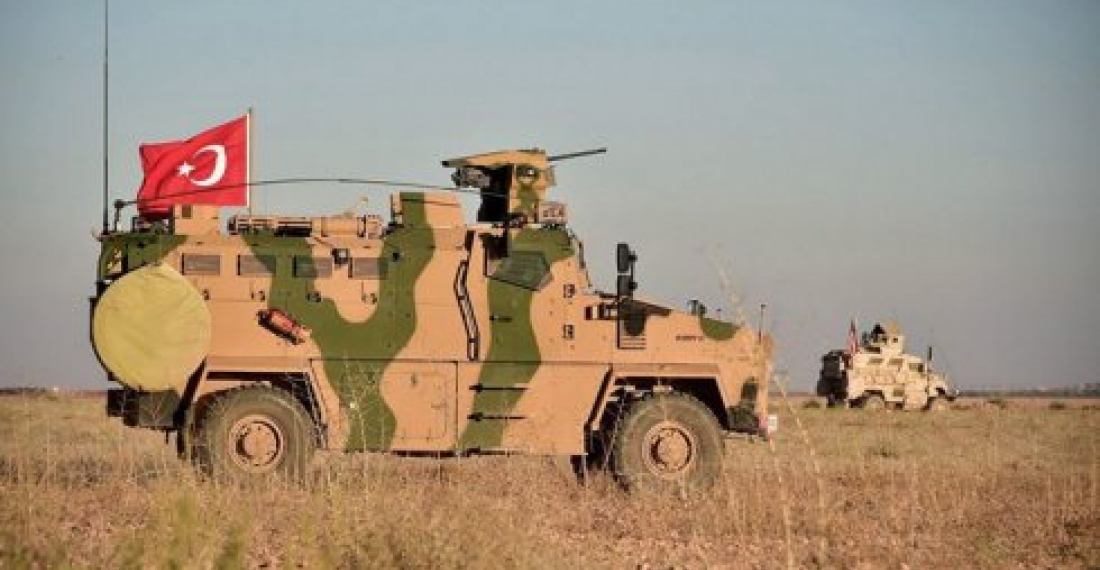Reflecting on new tensions in Russian-Turkish relations Dennis Sammut, writing in this week's Monday Commentary on commonspace.eu, says that Erdogan is not the first one to discover that the hug of the Russian bear comes with a price. Others, not least in the Caucasus region, are watching as this drama unfolds, and wondering what the consequences may be.
The first cracks in the three year old love affair between Putin's Russia and Erdogan's Turkey are now appearing. After months of trying to find a common strategy for dealing with their competing interests in Syria and in Libya a rift between the two countries has started unfolding.
It was Turkey's president Erdogan who went public with what were obviously problems that had been simmering under the surface for a while. In various speeches and press briefings Erdogan challenged Russia to choose whether in Syria it was with Turkey or with the regime of president Assad. On Libya Erdogan has accused General Haftar, leader of the dissident forces in eastern Libya, of being in the pay of Russian mercenaries (and the Russian mercenaries of being in the pay of Haftar's allies).
The situation has already gone beyond the state of tense political stand-off, and now resembles more a military stand-off.
As president Assad's forces, with the help of the Russians, push to re-occupy Idlib, the last part of Syria out of their control they are having to literally walk through Turkish established checkpoints. Heavy fighting is going on. In the last days Turkish troops have been killed, as have Russian special forces. The two are not yet accusing each other, but everyone can draw their own conclusions. This situation has serious consequences way beyond Syria and Libya.
So is this the end of the honeymoon between Russia and Turkey, or to put it more precisely between Erdogan and Putin. Maybe not quite yet, but not everything is fine in the matrimonial bed either.
Russian media have been suggesting that maybe the two could do a deal, allowing Turkey the upper hand in Libya and Russia the upper hand in Syria.
Moscow's Nezavisimaya Gazeta was hinting at something like this last week. . The paper quoted the Head of the Center for Islamic Studies at the Innovative Development Institute and Russian International Affairs Council expert Kirill Semenov as saying that the scale of Russia's support for Haftar's LNA forces was unclear. The Russian mercenaries of the "Wagner"group were paid by Arab governments not Russia, the expert said - creating with this argument a distance between them (and their fate) and Moscow. The expert hinted that Moscow and Ankara had struck a deal on Libya. "The pillar of Russia's return to the Middle East is the Russian-Turkish relationship. All the rest is the consequence," he stressed. But that was before Turkish troops got killed and Turkey sent in reinforcements with up to 200 tanks and military vehicles into Syria
For the moment Erdogan continues to criticise Russia publicly, for its actions in Syria, in support of Assad, and for its inaction in Libya, in not reining in the forces of General Haftar.
Under the surface both sides are trying to find some solution that would allow them both to get at least something of what they want, but it is not going to be easy.
Turkish-Russian rivalry in the Levant, North Africa, the Caucasus and Central Asia are deep rooted and go back centuries. Political expediency brought Erdogan and Putin into each other's arms in 2016. Reality on the ground is now driving them apart. But Erdogan will not be the first one to discover that the hug of the Russian bear comes with a price. Others, not least in the Caucasus region, are watching as this drama unfolds, and wondering what the consequences may be.
Source: Monday Commentary is prepared by Dennis Sammut, a member of the editorial team of commonspace.eu
photo: Up to 200 Turkish tanks and military vehicles are reported to have crossed the border into Syria during the weekend in response to the killing of Turkish soldiers in idlip (archive picture)
The views expressed in opinion pieces and commentaries do not necessarily reflect the position of commonspace.eu or its partners






